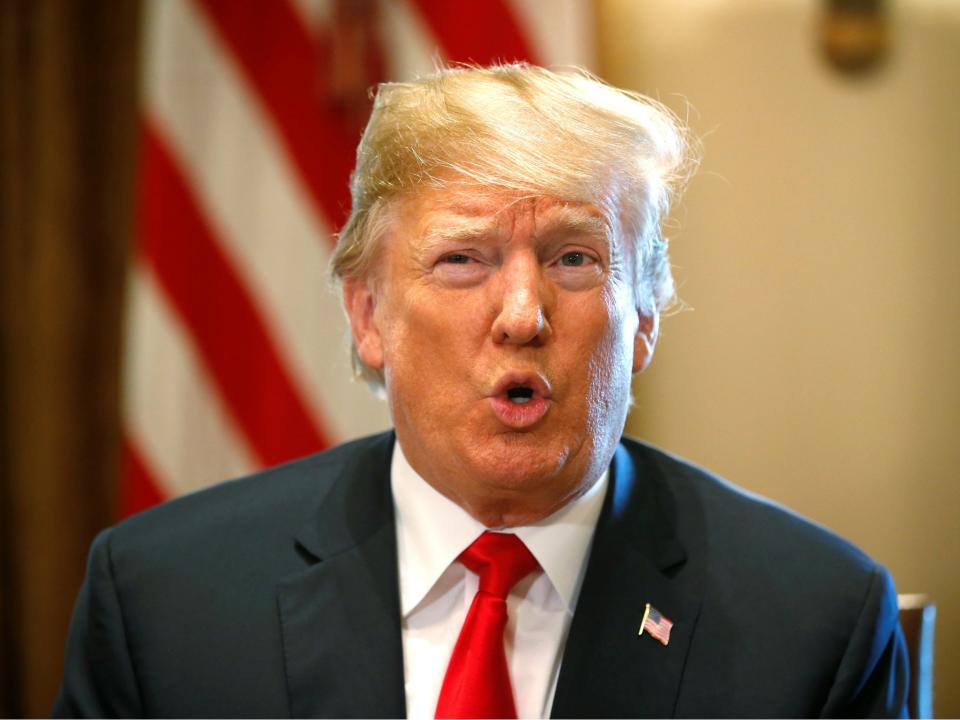In Trump's trade war, it's the developing economies caught in the crossfire that we should worry about

Don’t get caught in the crossfire.
The evolving trade tensions of the world are essentially between its two largest economies, the United States and China. Europe gets sideswiped largely because of American resentment at Germany, which is running the largest current account surplus in the world and has a budget surplus, yet underfunds its defence.
Canada gets clobbered quite badly because it exports a lot of steel to the US, but also because of more general concerns in the US as to the way the NAFTA agreement has played out.
But Europe and Canada are rich economies. Individual industries are hit but pain can be spread. There may also be offsets, industries that actually do better as result of trade restrictions. By contrast, damage to smaller and weaker economies is more troubling, and is one of the unintended consequences of Donald Trump’s full-frontal attack.
None of us know how this will play out so it is hard to gauge how the impact will flow through to individual countries, but some things are already clear.
One is that anything that damages the Chinese economy will damage its suppliers. Goods assembled in China then exported to the US will have components made elsewhere in East Asia. Capital Economics estimates that the country most affected is Taiwan, which supplies about 10 per cent of Chinese imports of intermediate goods. Singapore, Thailand and other regional suppliers would also be hit.
A second is that this comes at a time when financial confidence in the West towards emerging markets was quite weak. We tend to lump them all together when in reality they are very different. There is no connection between the problems in, for example, Argentina, and those in Turkey.
What seems to have been happening has been a general rise in aversion to risk, which has had the effect of pushing down share prices in the emerging world across the board. There is no question that the emerging countries, taken as a whole, will grow more swiftly than developed countries. But the risks are higher, and if investors turn away from risk, they bring the money back home.
A further factor attracting money back into the US, and the dollar, is rising interest rates in America. That has nothing to do with the trade tussles. The point is simply that if money flows into the dollar, that depresses the exchange rate for emerging market currencies. That has been very evident in recent weeks as trade tensions rose. While some depreciation is no bad thing – it makes exports more competitive – it is forcing central banks to counter this by increasing their own interest rates too. Mexico has already done so.
What should the rest of us make of all this?
Several things. For a start, international trade is extremely complex, so that any attempt to reset a bilateral relationship should be done carefully and progressively. I happen to think that the US has legitimate reasons to want to alter many aspects of the way it trades with China and to a lesser extent the EU, but there are cleverer ways of setting about it.
Steven Mnuchin, the US Treasury Secretary, who understands all this, has been very quiet in recent days. His silence says something about his views on what is happening.
Second, if a country such as Taiwan is hardest hit by tariffs on Chinese goods, then the US is hitting one of its allies. This makes no sense. But I suspect the US administration had little idea of the regional consequences of imposing tariffs on a wide range of Chinese goods.
Third, in any negotiation you need both carrots and sticks. I can’t see the carrots. I can’t see what the US is offering China in return for cooperation on the trade deficit. Maybe that will all become clearer in the weeks ahead, but not now.
Fourth, trade matters to the emerging world in ways that we don’t really think much about in the West. Why is Singapore GDP per head $53,000 while that of the UK is only $40,000? Well, part of the answer at least is that it is the region’s great trading hub.
Finally, the world economy is resilient. Countries hit in the crossfire will find ways of diversifying their exports. Companies will reorganise their supply chains. Bringing production closer to the marketplace, rather than using a cheaper supplier on the far side of the globe, may be no bad thing.
But there is enough disruption taking place as a result of changes in technology not to want to add to it. When countries behave in a disruptive way, the good guys get hurt too.

 Yahoo News
Yahoo News 